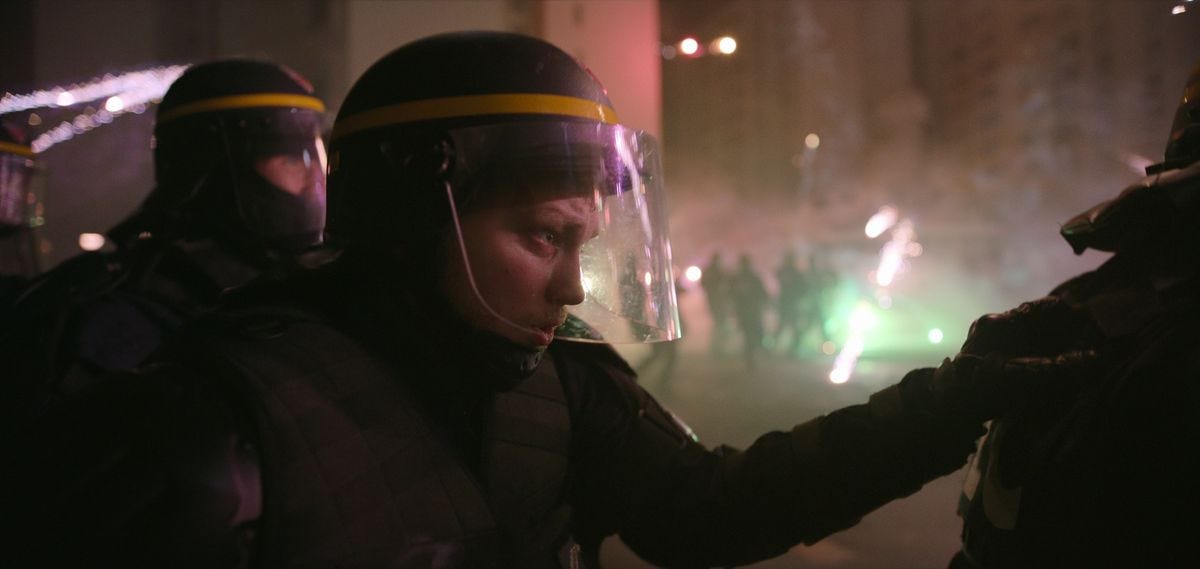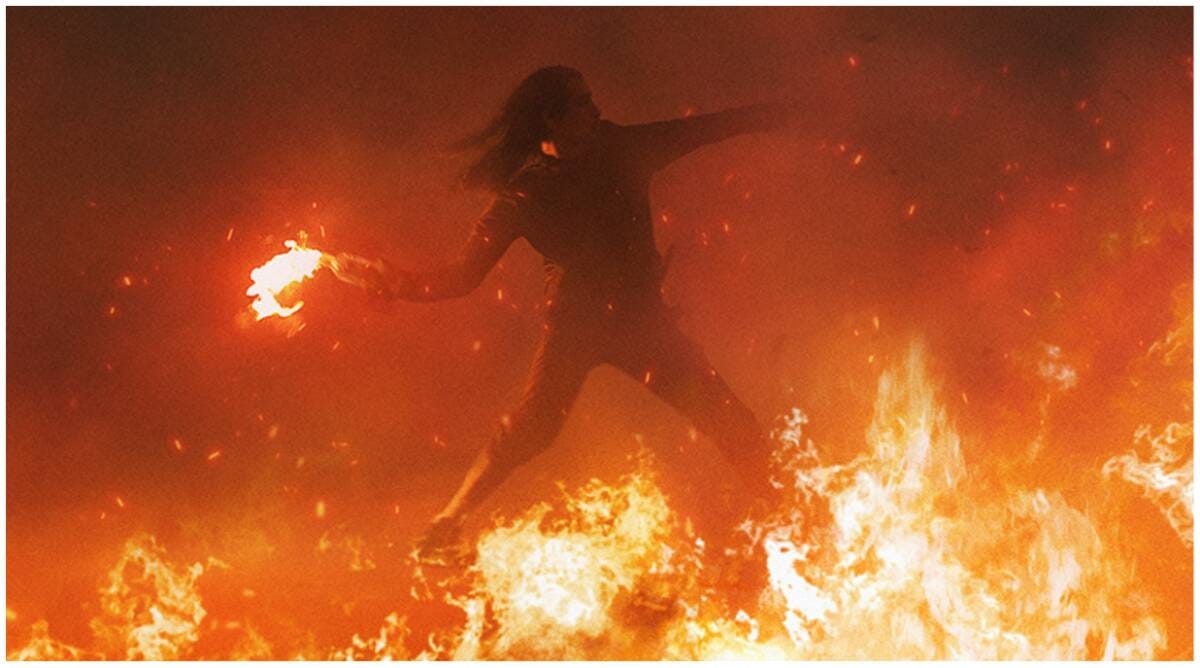Athena: A Pessimistic Take on Revolutions
The French movie tackles the debate between reform and revolution. Its outlook is extremely dark.
The film Athena was tied to French politics before it even came out. The provocative trailer, showing multiethnic revolutionaries taking over a French town by force, immediately went viral on Twitter. Right-wing commentators, including a member of the European parliament, called it an omen of “civil war.” After the movie’s release, some reviewers saw an allegory for the Algerian revolution against French rule, while others panned its political content as incoherent and shallow.
Whether or not director Romain Gavras meant to send a message about French politics, looking for one in Athena is a mistake. Instead, the film does best as a universal reflection on revolution. Its Shakespearean drama about three brothers caught up in a moment of violent social upheaval could take place anywhere from Marseille to Mashhad.
The first scene — filmed as an impressive eleven-minute single take — introduces the basic story. Abdel, a French Muslim army veteran, announces that his teenage brother Idir has been murdered by cops. Standing in front of the police station, he calls for a peaceful protest and an official inquiry. His other brother Karim instead throws a firebomb, setting off a youth revolt that spreads throughout the entire town of Athena.
The brothers find that working within the system is deeply compromising, but trying to overthrow it is another danger entirely. Once it starts, revolutionary violence is in no one’s control. And it may require even harder moral sacrifices than reform.
Opportunists crawl out of the woodwork. Karim’s half-brother Moktar is a drug dealer who only wants to preserve his business and his connections to corrupt officials. A police commander attempts to pump Abdel for intelligence. Sébastien, a gardener with a terrorist past, remains a cryptic and sinister presence.
Others are trapped in chaos they wanted no part in. A riot cop worries about his twin daughters and frets over the violence he will have to endure as the situation escalates. The town’s Muslim clergy struggle to maintain calm and evacuate the innocent.
“You’re useless! Letting kids take over?” a woman in a wheelchair yells while being carried out of her home.
The government is an impersonal machine. On one hand, its bureaucracy moves to investigate Idir’s death, promising accountability. On the other hand, a mass of riot cops gears up for battle. There is no question that the system will bring its heavy hand down on the revolt in Athena. It may also deliver justice for Idir, but either way, the state cannot surrender its role as the ultimate arbiter.
Abdel struggles to balance the million little compromises he has made, between his loyalty to his hometown and his faith in the system. Some characters call him a traitor, an insult that begins to sting more and more over time. Abdel himself starts to doubt how much justice the system can provide.
“Still like obeying orders? After what they did?” Abdel’s sister yells, in response to his pleas for calm. “Why not let it burn? The war has started.”
Others urge Abdel to put some sense into Karim and end the revolt. However, it is unclear how much control Karim really has, over the crowd and over his own emotions. The respect that Karim commands among the revolutionaries is not the same as real authority.
The revolution takes on a life of its own. Once the authority of the state falters, everything seems possible. Protesters revel in their newfound freedom, singing “we are the police now!” They throw up middle fingers, play with stolen police gear, and urinate in public. Karim scolds the revolutionaries — “You think this is a game? It’s war!” — but he cannot stop the exuberant mood.
The chaos spreads across France. Youth from other suburbs join Athena. Media clips report rioters storming police stations and right-wing extremists burning mosques. TV anchors increasingly use the words “civil war” as the army announces that it will intervene.
Surprisingly, the film does not dwell too much on ethnic divisions. At one point, Karim calls Abdel a harki, a term for Algerians who collaborated with the French colonization of their country. Otherwise, both the people of Athena and the government forces are shown as a mix of colors and religions. The conflict is focused on one’s relationship to the political regime.
As the violence escalates, it takes on a medieval vibe. The revolutionaries ride motorcycles and horses, grunt war cries, and hurl heavy objects from behind barricades. The police units’ shields and tortoise-shell formations evoke Roman legions. They climb siege ladders as Latin chanting and organ music play in the background.
But there is also an unmistakably modern element to the clashes. As the rebels launch a refrigerator and shoot fireworks at a police formation, Karim helps them aim with the aid of a live news broadcast he is watching on his phone.
Battle lines become confused. Moktar calls for help from the dirty cops in his pocket. Sébastien pushes the violence in a more nihilistic direction. The circumstances of Idir’s death turn out to be far more complicated than expected, though no less unjust.
The final act of the movie is unsatisfying. Without spoiling too much, there is no path to a clean resolution, nor a clear moral message. Everyone has become a monster, a traumatized victim, or both. It is fully in line with the film’s pessimistic view on revolution, which leaves room for neither heroes nor happy endings.
Athena is a story for the age of failed revolts, from the Arab Spring to the Black Lives Matter movement. Around the world, a similar pattern has emerged. Social media helps mobilize leaderless rebellions. Authorities lose control as they struggle to cope with widespread, directionless unrest.
In some places, the uprisings fizzle out on their own. In others, they bring down the system, but with no order to replace it. And that is when the time of monsters begins.






